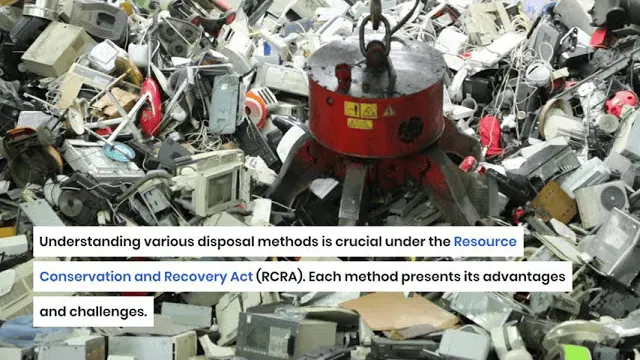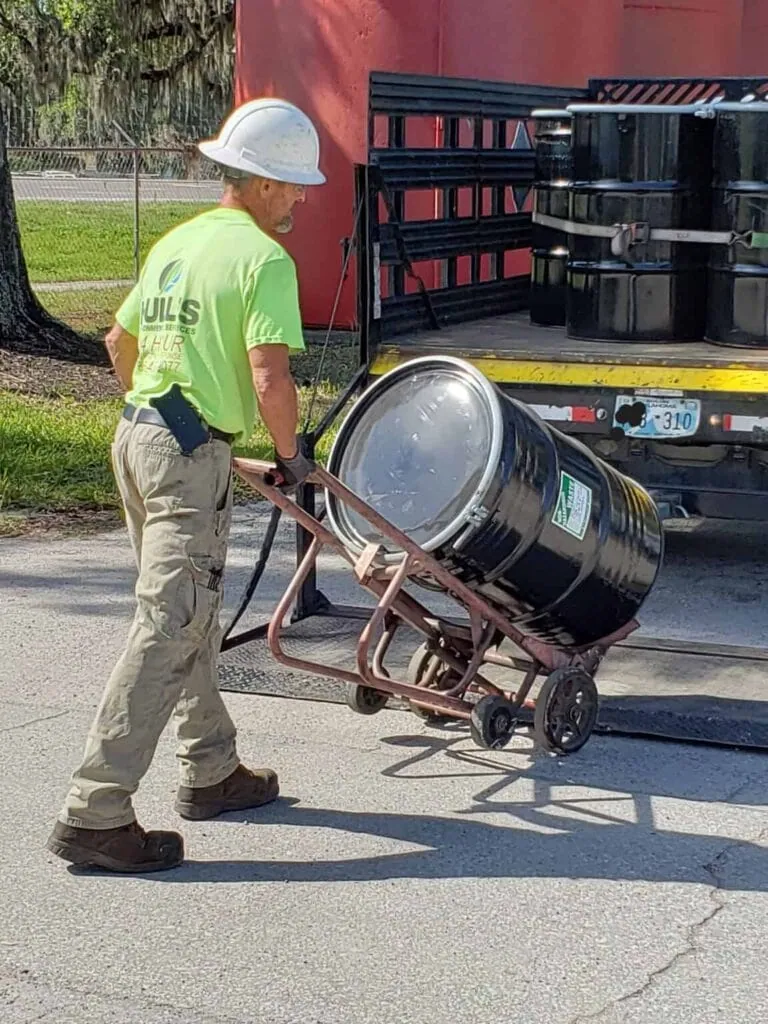Waste disposal involves the safe, organized, and responsible handling and elimination of waste materials generated by human activities. Understanding various disposal methods is crucial under the Resource Conservation and Recovery Act (RCRA). These methods encompass traditional options, such as landfills and incineration, and innovative alternatives, like recycling and bioremediation. Each method presents its advantages and challenges.
This article discusses methods for disposing of hazardous and non-hazardous waste, emphasizing the importance of employing appropriate approaches to safeguard public health and the environment.
Landfills
Land disposal involves burying or dumping waste in designated areas known as landfills. These sites are carefully engineered with liners, leachate collection systems, and monitoring to prevent contaminating the surroundings. While effective for large volumes of waste, landfills require adequate space and can pose long-term environmental risks if not properly managed.
Incineration
Incineration involves burning waste at high temperatures to reduce its volume and eliminate hazardous components, effectively reducing landfill waste and generating energy. However, incineration emits pollutants, necessitating stringent pollution control measures to mitigate air pollution and ensure the safe handling of residues.
Recycling
Recycling involves collecting, sorting, and reprocessing waste materials to create new products. While more commonly associated with non-hazardous waste, certain hazardous materials can also be recycled if they can be safely treated and reused. Recycling conserves resources, reduces landfill waste, and can be economically beneficial.
Treatment
Treatment methods involve using chemical, physical, or biological processes to neutralize or stabilize hazardous waste, making it less harmful or easier to handle. Chemical precipitation, oxidation, and bioremediation are common treatment techniques. These processes can reduce the toxicity of waste but may generate secondary waste streams and require specialized facilities.
Secure Land Disposal Facilities
Secure land disposal facilities are engineered to isolate highly toxic or persistent hazardous waste from the environment for long periods. These facilities, such as deep geological repositories, employ multiple barriers and containment measures to prevent contamination of soil and water resources. They are designed for waste with long-term hazards or unknown future risks.
Waste-to-Energy (WTE) Facilities
WTE facilities use waste as a fuel to generate energy through processes including combustion or gasification. While primarily used for municipal solid waste, some facilities can handle certain types of hazardous waste. WTE also reduces the volume of waste going to landfills and generates renewable energy, but it requires careful management of emissions and ash residues.
Hazardous Waste Landfills
Specialized hazardous waste landfills are designed specifically for the disposal of hazardous waste. These facilities have stringent waste acceptance, handling, and containment requirements to minimize environmental risks and protect public health. They are equipped with liners, leachate collection systems, and monitoring to prevent soil and groundwater contamination.
Bioremediation
Bioremediation utilizes microorganisms or plants to degrade or neutralize hazardous substances in soil or water. It offers a natural and sustainable approach to waste remediation, but its effectiveness depends on site conditions, contaminant type, and microbial activity. Bioremediation can be cost-effective for certain types of contamination.
Encapsulation
Encapsulation involves immobilizing hazardous waste in materials, such as concrete or epoxy. This method prevents contaminants from leaching into the environment and is often used for waste that cannot be easily disposed of using other methods. However, encapsulation may not address underlying contamination sources and requires careful design and construction.

Choose Hull’s Environmental Services for Expert Waste Disposal Solutions!
At Hull’s Environmental Services, we specialize in waste disposal and transportation, serving as your reliable environmental partner for comprehensive waste management solutions. Our commitment to delivering high-quality service guarantees that every task is completed accurately on the initial attempt, saving you valuable time and resources.
Contact us today or request a quote to get started!











